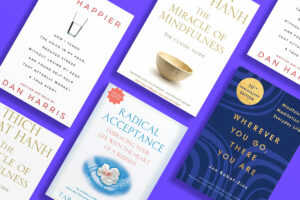
In today’s fast-paced world, stress has become an inevitable part of life. Whether it’s due to work pressure, personal issues, or the constant barrage of information, everyone faces stress at some point. Meditation has emerged as one of the most effective techniques for managing and reducing stress. This article will explore various meditation techniques that you can incorporate into your daily routine to help alleviate stress and improve overall well-being.
Understanding Stress and Its Impact
Before diving into meditation techniques, it’s essential to understand what stress is and how it affects the body. Stress is a natural response to perceived threats or challenges. When you encounter a stressful situation, your body releases hormones like cortisol and adrenaline, which prepare you for a “fight or flight” response. While this response can be beneficial in short bursts, chronic stress can lead to various health problems, including:
- Anxiety and depression
- High blood pressure
- Heart disease
- Sleep disorders
- Digestive issues
By incorporating meditation into your daily routine, you can manage stress more effectively and reduce the risk of these health problems.
Benefits of Meditation for Stress Relief
Meditation offers numerous benefits that can help counteract the effects of stress. Some of the key benefits include:
- Reduces Cortisol Levels: Meditation has been shown to lower cortisol levels, helping to reduce the physical and mental impact of stress.
- Improves Focus and Concentration: Regular meditation practice can enhance your ability to focus and concentrate, making it easier to manage stressful situations.
- Promotes Emotional Well-being: Meditation encourages mindfulness and self-awareness, which can improve emotional regulation and reduce symptoms of anxiety and depression.
- Enhances Sleep Quality: By promoting relaxation, meditation can help improve the quality of your sleep, which is often disrupted by stress.
- Boosts Overall Health: Meditation has been linked to lower blood pressure, improved immune function, and better cardiovascular health.
Meditation Techniques for Stress Relief
There are various meditation techniques you can try, each offering unique benefits. Here are some of the most effective techniques for stress relief:
1. Mindfulness Meditation
Mindfulness meditation involves paying attention to the present moment without judgment. This technique encourages you to observe your thoughts, feelings, and sensations without getting caught up in them.
How to Practice:
- Find a quiet place where you won’t be disturbed.
- Sit comfortably with your back straight and your hands resting on your lap.
- Close your eyes and take a few deep breaths to relax.
- Focus on your breath, noticing the sensation of the air entering and leaving your nostrils.
- If your mind wanders, gently bring your attention back to your breath.
- Practice for 10-20 minutes daily.
2. Guided Meditation
Guided meditation involves following the instructions of a guide, either through a recording or in person. This technique can be particularly helpful for beginners who may find it challenging to meditate on their own.
How to Practice:
- Choose a guided meditation that suits your needs. There are many available online or through meditation apps.
- Find a comfortable place to sit or lie down.
- Follow the instructions of the guide, focusing on their voice and the imagery they describe.
- Allow yourself to fully immerse in the experience.
3. Transcendental Meditation
Transcendental Meditation (TM) involves the use of a mantra, a specific word or phrase that is repeated silently. This technique aims to transcend ordinary thought and reach a state of pure awareness.
How to Practice:
- Sit comfortably with your eyes closed.
- Silently repeat a mantra, such as “om” or any word that feels soothing to you.
- Continue repeating the mantra for 15-20 minutes, allowing your mind to settle.
- If your mind wanders, gently return to the mantra.
4. Loving-Kindness Meditation
Loving-Kindness Meditation (Metta) focuses on developing feelings of compassion and love towards yourself and others. This technique can help reduce negative emotions and foster a sense of connection.
How to Practice:
- Sit comfortably and close your eyes.
- Begin by focusing on yourself, silently repeating phrases like “May I be happy, may I be healthy, may I be safe, may I live with ease.”
- Gradually extend these wishes to others, starting with loved ones and eventually including all beings.
- Repeat the phrases for 10-15 minutes, focusing on the feelings of love and compassion.
5. Body Scan Meditation
Body Scan Meditation involves paying attention to different parts of your body, one at a time. This technique helps you become more aware of bodily sensations and promotes relaxation.
How to Practice:
- Lie down in a comfortable position.
- Close your eyes and take a few deep breaths to relax.
- Starting from your toes, gradually bring your attention to each part of your body, moving upwards.
- Notice any sensations, tension, or discomfort, and breathe into those areas.
- Continue scanning your body until you reach the top of your head.
6. Yoga Nidra
Yoga Nidra, also known as yogic sleep, is a guided meditation practice that induces deep relaxation. It’s often practiced lying down and can be highly effective for stress relief.
How to Practice:
- Lie down in a comfortable position with your arms by your sides.
- Close your eyes and take a few deep breaths.
- Follow a guided Yoga Nidra session, focusing on the instructions and allowing your body to relax deeply.
- The practice typically lasts 20-40 minutes.
7. Breath Awareness Meditation
Breath Awareness Meditation involves focusing on your breath to calm the mind and reduce stress. This technique is simple yet effective for beginners.
How to Practice:
- Sit comfortably with your back straight and your hands resting on your lap.
- Close your eyes and take a few deep breaths.
- Focus on the natural rhythm of your breath, observing the sensation of the air entering and leaving your nostrils.
- If your mind wanders, gently bring your attention back to your breath.
- Practice for 10-20 minutes daily.
Tips for Successful Meditation
Starting a meditation practice can be challenging, especially if you’re new to it. Here are some tips to help you succeed:
- Start Small: Begin with short sessions of 5-10 minutes and gradually increase the duration as you become more comfortable.
- Be Consistent: Try to meditate at the same time each day to build a habit. Consistency is key to experiencing the benefits of meditation.
- Create a Comfortable Space: Find a quiet and comfortable place where you can meditate without interruptions.
- Be Patient: It’s normal for your mind to wander during meditation. Don’t get discouraged; gently bring your focus back each time.
- Use Resources: Utilize guided meditations, apps, and online resources to help you stay on track and learn new techniques.
Meditation Apps and Resources
There are numerous apps and online resources available to help you with your meditation practice. Some popular options include:
- Headspace: Offers guided meditations, mindfulness exercises, and sleep aids.
- Calm: Provides a variety of meditations, sleep stories, and relaxation techniques.
- Insight Timer: Features thousands of free guided meditations and courses.
- BookBits: Offers summaries of popular meditation and mindfulness books, providing quick insights and techniques for stress relief.
The Role of Audio Book Summaries in Enhancing Meditation Practice
Audio book summaries can be a valuable resource for deepening your understanding of meditation and mindfulness. They provide concise insights and practical tips from experts, making it easier to integrate these practices into your daily life. BookBits offers a wide range of audio book summaries on meditation and mindfulness that you can listen to on the go, helping you stay informed and motivated.
Recommended Audio Book Summaries
- Wherever You Go, There You Are by Jon Kabat-Zinn: This book offers practical guidance on integrating mindfulness into everyday life.
- The Miracle of Mindfulness by Thich Nhat Hanh: Learn the basics of mindfulness meditation from one of the most respected Zen masters.
- 10% Happier by Dan Harris: Discover how meditation can improve your life from the perspective of a skeptical news anchor.
By leveraging these summaries, you can gain valuable insights and tips to enhance your meditation practice and manage stress more effectively.
Meditation Retreats in Thailand
Thailand is known for its serene landscapes and spiritual heritage, making it an ideal destination for meditation retreats. Attending a retreat can provide you with an immersive experience, allowing you to deepen your practice and gain new insights.
Popular Retreat Centers
- Wat Suan Mokkh: Located in Chaiya, this monastery offers 10-day silent meditation retreats focused on mindfulness and self-awareness.
- The Sanctuary Thailand: Situated on Koh Phangan, this retreat center offers various meditation and wellness programs in a tranquil beach setting.
- Dhamma Kancana Vipassana Meditation Center: Located in Kanchanaburi, this center offers 10-day Vipassana meditation courses in the tradition of S.N. Goenka.
Attending a meditation retreat in Thailand can be a transformative experience, helping you to disconnect from daily stressors and focus on inner peace.
Conclusion
Meditation is a powerful tool for stress relief and overall well-being. By incorporating various meditation techniques into your daily routine, you can manage stress more effectively, improve your focus, and enhance your emotional health. Whether you choose mindfulness meditation, guided meditation, or any other technique, the key is to practice consistently and be patient with yourself.
For more insights and tips on meditation and stress relief, subscribe to BookBits and explore our extensive library of audio book summaries. By leveraging these resources, you can stay informed and motivated on your journey to a stress-free life.


